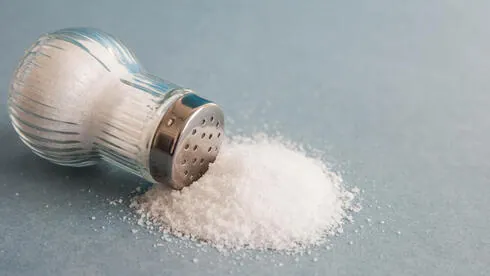
Is Your Salt Shaker Hurting Your Mood? Shocking New Research Links High Sodium Diet to Depression!
2025-04-12
Author: Mei
New Study Uncovers Surprising Connection Between Salt Intake and Depression
A groundbreaking study has unveiled a startling link between high salt consumption and the onset of depression-like symptoms, using mice as test subjects. This research suggests that what we eat may significantly impact our mental well-being.
The Experiment: Mice on a High-Salt Diet
Published in The Journal of Immunology, the study monitored mice over five to eight weeks, comparing those on a normal diet to those feasting on a salt-laden regimen. Researchers observed that the high-salt group exhibited behaviors akin to those of stressed mice, a common model for depression analysis.
Dr. Ofer Shamgar, who led the investigation, noted, "The mice on the high-salt diet showcased behaviors reminiscent of our stressed control group, hinting that increased salt intake might spur depressive symptoms." Furthermore, scientists detected heightened levels of Interleukin-17A (IL-17A), a cytokine closely associated with depression.
A Biological Explanation for Mood Changes
Closer examination revealed that specific cells in the high-salt group produced increased IL-17A levels, particularly in the spleen and various brain regions. In a follow-up experiment, researchers blocked these IL-17A-producing cells while still feeding the mice a high-salt diet. Interestingly, IL-17A levels stabilized, and depressive behaviors did not escalate.
Implications for Humans: What Can We Learn?
Dr. Shamgar emphasized the importance of these findings, stating, "Our research offers a new insight into the potential causal relationship between high salt consumption and depression, alongside a biological basis for the mechanism involved.' While further research is needed to determine the correlation in humans, the implications are profound.
Not Just a Mouse Problem: Salt’s Impact on Human Mood
He acknowledged that although the study was conducted on mice—whose depression-like symptoms don't completely mirror human experiences—the findings suggest a crucial avenue for dietary recommendations. Excessive salt intake has already been linked to various health issues, and now may also contribute to mental disorders.
The Call to Action: Reduce Sodium to Boost Mental Health!
Dr. Shamgar anticipates that should these findings be applicable to humans, a recommendation to lower salt intake might emerge, paralleling advice to limit salt for blood pressure management.
The Gut-Brain Connection: A Holistic View on Health
This study reinforces a growing body of evidence that highlights the strong connection between diet and overall health. Michal Sukman, chief dietitian at Maccabi Healthcare Services, explained, "We are increasingly recognizing the gut-brain connection. Our digestive system can significantly influence brain health, including mood improvement by affecting neurotransmitter release."
As dietary factors gain importance in treating mental health issues like depression and anxiety, the link between high salt intake—often found in processed foods—and adverse mood effects cannot be ignored.
Salt: A Double-Edged Sword?
While our bodies require some sodium to function properly, modern diets typically lead to excessive salt consumption, largely from processed foods. Dr. Sukman pointed out that the majority of our sodium intake comes from these foods, which are less healthy options.
As the research community digs deeper into diet's role in mental health, the message is clear: reducing salt intake might not just lower your blood pressure; it may also lift your spirits!


 Brasil (PT)
Brasil (PT)
 Canada (EN)
Canada (EN)
 Chile (ES)
Chile (ES)
 Česko (CS)
Česko (CS)
 대한민국 (KO)
대한민국 (KO)
 España (ES)
España (ES)
 France (FR)
France (FR)
 Hong Kong (EN)
Hong Kong (EN)
 Italia (IT)
Italia (IT)
 日本 (JA)
日本 (JA)
 Magyarország (HU)
Magyarország (HU)
 Norge (NO)
Norge (NO)
 Polska (PL)
Polska (PL)
 Schweiz (DE)
Schweiz (DE)
 Singapore (EN)
Singapore (EN)
 Sverige (SV)
Sverige (SV)
 Suomi (FI)
Suomi (FI)
 Türkiye (TR)
Türkiye (TR)
 الإمارات العربية المتحدة (AR)
الإمارات العربية المتحدة (AR)